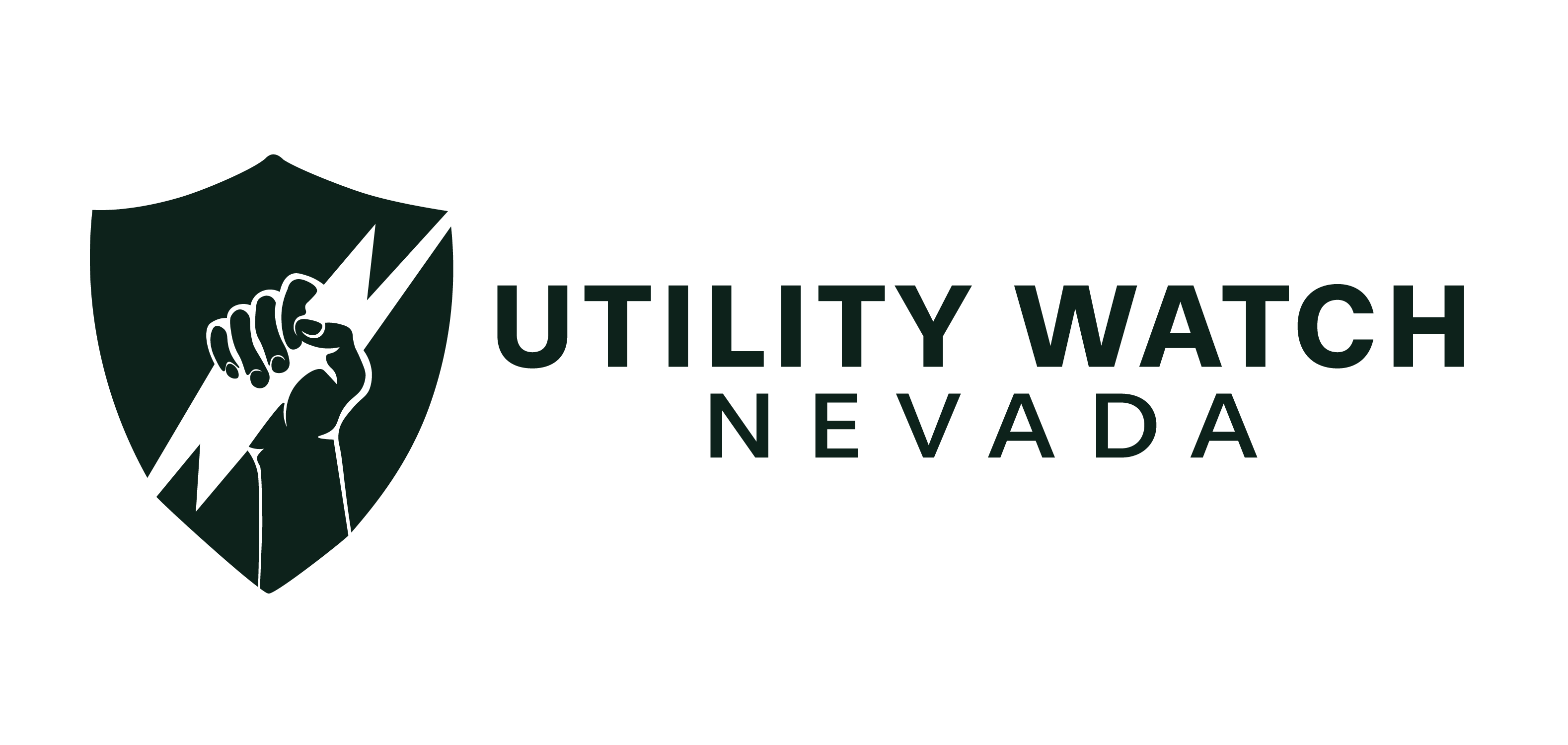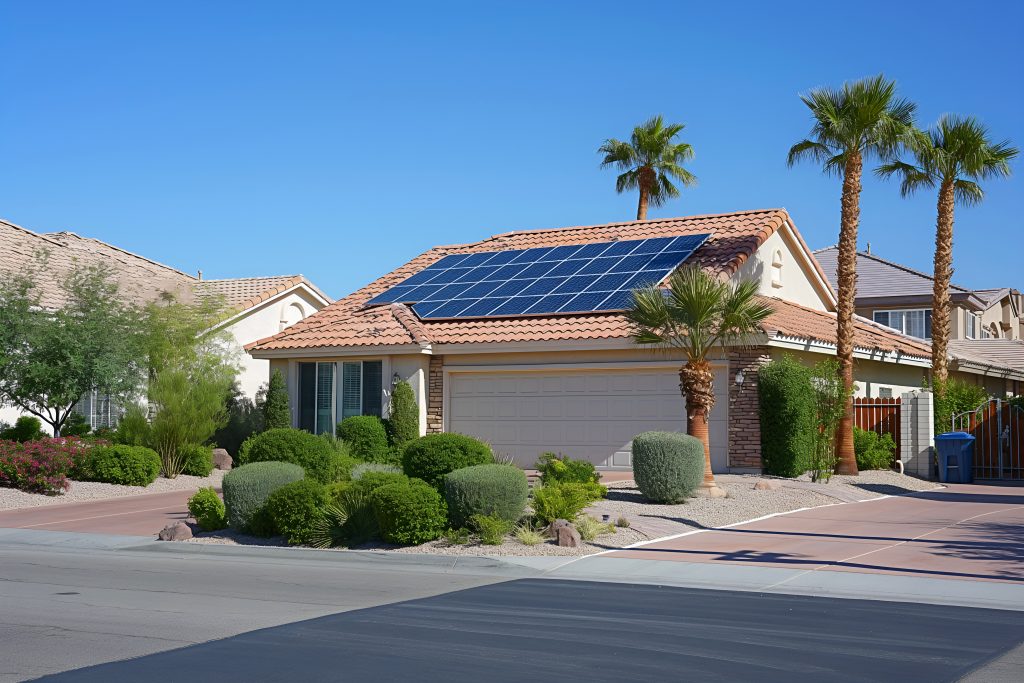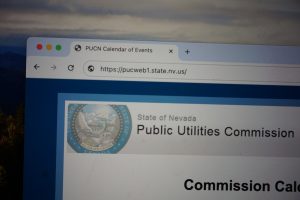This blog was originally published by Western Resource Advocates.
Sierra Pacific Power Company, NV Energy’s Northern Nevada utility, has proposed almost tripling the monthly fixed charge for residential customers from $16.50 to $44.40 in a recently filed application with the Public Utilities Commission of Nevada. If approved by the Commission, the requests will result in an overall 9% rate increase, and a significant impact to power bills for many Nevada families.
If NV Energy has its way, Northern Nevada families will owe the power company $44.40 every month before they even flip on a light switch. The company’s proposed restructuring of power bills would be bad news for hard-working families that want more control over their power bill – hitting those with fixed and lower incomes the hardest.
HIGHER RATE, SPIKING BASIC SERVICE CHARGE
Sierra Pacific Power Company, NV Energy’s Northern Nevada utility, has proposed almost tripling the monthly basic customer service charge (fixed charge) for residential customers from $16.50 to $44.40 in a recently filed application with the Public Utilities Commission of Nevada. On top of the spike in the basic service charge on customer bills, the company is asking for an additional $95 million in annual revenue. This would be paid for by customers and help fund a higher financial return for NV Energy shareholders. If approved by the Commission, the requests will result in an overall 9% rate increase, and a significant impact to power bills for many Nevada families.
LOWER-INCOME, LOWER ENERGY USAGE FAMILIES HIT THE HARDEST
The data shows that in nearly every state, on average, low‐income customers consume less electricity than other customers. NV Energy’s proposal will recover more of its costs, and profits, through a significantly higher fixed fee on residential customer bills while making a corresponding decrease to the volumetric energy rate (cents per kilowatt hour) portion of the bill. The higher fixed fee of $44.40 will hit low-energy usage, lower-income customers the hardest, raising power bills significantly for the utility’s most energy insecure customers. Meanwhile, those that use lots of energy – who typically live in larger homes and are more affluent, get a break on power bills.
LESS CONTROL OVER POWER BILLS, SENDING THE WRONG PRICE SIGNAL
When the proposed fixed charge for customers is increased, the volumetric energy rate is reduced, thereby lowering the value of a kilowatt‐hour that is conserved. The almost tripling of the fixed charge will all but remove NV Energy’s customers’ ability to lower their energy use and meaningfully save money on bills – effectively penalizing those that conserve electricity, or have made home efficiency investments, and rewarding energy waste.
With little incentive to save and limited control over their power bill, customers may actually increase their energy usage. That leads to a host of policy considerations for the Commission.
- NV Energy will ultimately have to spend more to achieve the same levels of energy savings from its customer-focused energy efficiency programs;
- As demand for electricity rises, NV Energy will need to invest in new power plants, raising rates for all customers; and
- The move sends the signal to customers that conserving energy is no longer rewarded, instead promoting energy waste. This undermines state policy to reduce carbon pollution from the power sector and improve air quality for Nevadans. Northern Nevada’s air quality is already among the worst in the nation – the Reno-Carson City metropolitan area recently received a grade of an “F” for air quality from the American Lung Association.
OVERREACH BY NV ENERGY
Historically, basic service charges have been used to recover the portion of utility costs that do not vary with usage. These costs typically include the costs of meters, the service lines to the home, and customer billing and accounting services.
NV Energy’s proposal would expand the use of the basic service charge to have residential customers pay more distribution system-related costs traditionally recovered through the volumetric energy rate. For instance, customers would be paying more for electrical line extensions, poles and transformers that don’t directly serve them or their community through the higher fixed charge. The company wants residential bills to reflect the costs of demand for power that residential customers put on the power system – by equally apportioning those costs across all customers through a higher fixed charge. Unfortunately, under the higher fixed charge, it is users who place the least demand on the power system that are penalized through higher fixed charges and higher bills.
Utilities generally have strong incentive to propose higher fixed charges. The more revenue that a utility can collect through a fixed monthly charge, the lower the risk of missed revenue from low energy users, or other factors like weather and economic downturn. NV Energy’s proposal is a blunt instrument that imposes costs on those least able to afford it and should be rejected by the Commission. WRA has intervened in the proceeding and will be working towards an outcome that protects Nevadans’ pocketbooks and the natural environment.





